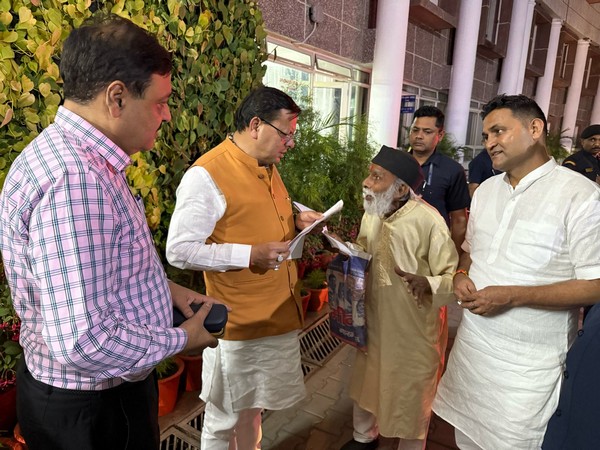"Coming generations will live with 'Nyay Sanhita'...": PM Modi in Lok Sabha
Feb 10, 2024

New Delhi [India], February 10 : Prime Minister Narendra Modi said that it is a matter of pride that the country might have lived with 'Indian Penal Code' for 75 years, but the coming generations will live with 'Nyay Sanhita'.
The Prime Minister was addressing the 17th Lok Sabha on the last day of the budget session.
"For 75 years, we lived with the Penal Code given by the British. To the new generation, we can say with pride that the country might have lived under the Penal Code for 75 years but the next generation will live with Nyaya Sanhita. This is true democracy," said PM Modi.
"More than 60 obsolete laws were removed. This was needed to improve the ease of doing business," PM said.
PM Modi emphasized the need for trusting the citizens. He informed that Jan Vishwas Act decriminalized 180 activities. The Mediation Act has helped in breaking unnecessary litigation-related issues.
Pointing out the initiative and laws for the youth, the Prime Minister noted the strong law against the problem of paper leak. The Prime Minister stressed the importance of research and acknowledged the far-reaching importance of the National Research Foundation Act. He expressed the confidence that this Act will help in making India a global hub of research and innovation.
Noting that basic needs in the world have changed in the 21st century, the Prime Minister mentioned the value of data.
He said that the passage of the Digital Personal Data Protection Act has safeguarded the data of the present generation and also garnered interest from across the world. Underlining its importance in India, the Prime Minister highlighted the nation's diversity and the diversified data that it generated within the country.
During its winter session, the Parliament passed bills on the Bharatiya Nyaya Sanhita, the Bharatiya Nagarik Suraksha Sanhita and the Bharatiya Sakshya Act to replace the Indian Penal Code (IPC), the Code of Criminal Procedure (CrPC) and the Indian Evidence Act (IEA).
On December 25, President Droupadi Murmu gave her assent to the three new criminal law Bills which became acts.
Bharatiya Nyaya Sanhita will have 358 sections (instead of 511 sections in the IPC). A total of 20 new crimes have been added to the bill, and the imprisonment sentence has been increased for 33 of them. The amount of the fine has been increased in 83 crimes and mandatory minimum punishment has been introduced in 23 crimes. The penalty of community service has been introduced for six crimes and 19 sections have been repealed or removed from the bill.
Bharatiya Nagrik Suraksha Sanhita will have 531 sections (in place of 484 sections of CrPC). A total of 177 provisions have been changed in the bill, and nine new sections as well as 39 new sub-sections have been added to it. The draft act has added 44 new provisions and clarifications. Timelines have been added to 35 sections and audio-video provision has been added at 35 places. A total of 14 sections have been repealed and removed from the bill.
Bharatiya Sakshya Adhiniyam will have 170 provisions (instead of the original 167 provisions), and a total of 24 provisions have been changed. Two new provisions and six sub-provisions have been added and six provisions have been repealed or deleted from the bill.
The recent criminal justice reform in India marks a significant shift in priorities, placing crimes against women, children, and the nation at the forefront. This stands in stark contrast to colonial-era laws, where concerns like treason and treasury offences outweighed the needs of ordinary citizens.
Meanwhile, today is the last day of the last session of the 17th Lok Sabha, being held before the general elections, which are scheduled to be held in April-May this year.
















